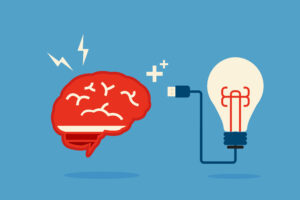
The Power of the Introverted Leader
Where is their strength and how can you as a coach help them make the most of it? What does it actually mean to be

Where is their strength and how can you as a coach help them make the most of it? What does it actually mean to be

Why monitor and manage your coaching sessions?
In the world of coaching, both business and personal, the effectiveness of each session is more than just good questioning between coach and coachee. Close monitoring of every interaction, progress and feedback is an essential basis for achieving tangible and measurable results.
Analysis of coaching-specific monitoring needs
Monitoring your coaching sessions means more than tracking progress. It requires a deep understanding of your coachee’s specific interactions, goals and challenges. Here, it is crucial to clearly identify the goals of the coaching. Is it aimed at professional or personal development, stress management, or emotional management? Each goal requires its own approach.

Perfectionism in business can be a double-edged sword. While striving for excellence can lead to high-quality work, it can also create stress, delay progress, and stifle creativity. Coaching often involves helping individuals and teams find a balance between high standards and practical productivity.
Here’s a structured approach step by step to address perfectionism in your coaching practice:
STEP 1 : Understanding Perfectionism
STEP 2 : Recognising the Impact
STEP 3 : Setting Realistic Standards
STEP 4 : Embracing Imperfection
STEP 5 : Time Management and Prioritisation
STEP 6 : Continuous Improvement

A good coach possesses a combination of personal attributes, coaching skills and knowledge that combine to provide effective guidance and support to clients.
Personal traits:
Ability to empathise with the feelings and experiences of others. Patience to give clients time to grow and achieve their goals. Honesty and reliability to gain and maintain clients’ trust.
Professional skills:
Active and attentive listening. Asking the right questions for deeper insights and promoting self-reflection on the part of the coachee. A good coach can help clients identify problems and find effective solutions
Knowledge and expertise:
A good coach has a solid foundation in the theories and techniques of coaching. Experience helps a coach to recognise and deal effectively with a wide range of situations. A good coach is committed to continuous professional development through courses, workshops and literature.

Coaches have heard for years about emotional intelligence (EI). As coaches we want to have an impact and connect more deeply with our clients and provide more impactful and meaningful coaching experiences.
Emotional intelligence is the basis of coaching for both parties. If both the coach and the client are fully aware and in control of their emotions, their communication is smooth and effective.
Being aware of our emotions is essential to bring the right coaching presence to the session and handle anything that can happen skillfully and effectively.
But what makes it challenging for coaches to apply Emotional Intelligence?

The Imposter Syndrome, the persistent feeling of inadequacy despite evident success, is a common challenge among coachees as well as coaches. This psychological pattern leads individuals to doubt their abilities and fear being exposed as a “fraud,” even when they are highly competent and accomplished.
The Imposter syndrome often manifests through:
Perfectionism
Setting extremely high standards and feeling inadequate when these standards are not met.
Attribution of Success to External Factors
Believing success is due to luck or other external factors rather than one’s own abilities.
Fear of Failure
Avoiding challenges due to the fear of being exposed as incompetent.
Downplaying Accomplishments
Dismissing praise and undervaluing one’s achievements.
It’s interesting to observe how Coaches, whether in the context of executive, career, life, or performance coaching, play a pivotal role in addressing and balancing the effects of imposter syndrome.

Resilience is one of the latest buzzwords. But what exactly are we talking about?
What is resilience?
Resilience is a psychological phenomenon in which an individual affected by trauma (difficult or stressful situations) acknowledges the traumatic event and adapts by overcoming the obstacles to recover better and bounce back. Hence, the individual can rebuild his or her life in a way that is socially acceptable to him or herself and to others.
Research also shows that resilience is linked to what neuroscientists call cerebral plasticity or neuroplasticity: the brain’s ability to reorganise and remodel itself in response to changes in the environment. This cerebral plasticity can itself be stimulated by regular training and the repetition of new behaviours. Neuroscience therefore helps us to better understand the underlying mechanisms of resilience by examining how the brain processes and regulates stress and emotion.

A couple of years ago, I had a coaching session that ended up being deeply moving for us both. We were meeting for the second time. The coachee started out by chattering about a number of things that seemed unrelated to any goal, and I found myself getting impatient. After a few minutes, I interrupted and said something like :
« I am still not clear about what you would like to get out of this conversation. We don’t have many sessions together, and I want to make sure that we have a discussion today that you consider very, very important. How can we do that ?»

The Vital Questions Framework is a simple, clear but extremely powerful means of structuring coaching sessions. It consists of a two by two matrix which looks at the task and the people aspects of any situation and then further divides the areas into those that are external to the person and those that are internal.

To start, Coaching for individuals covers an infinite range of issues, especially as each person is unique in his or her being, experiences and projects.
Recurring themes in coaching requests from individuals: a better work-life balance, developing self-confidence or self-esteem, defining a new life project, resolving a relationship conflict, managing stress better, developing your interpersonal and communication skills, rediscovering motivation.